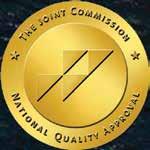
KANE COUNTY CORONER
Rob Russell – Coroner


KANE COUNTY CORONER
Rob Russell – Coroner
Vicki Foley – Community Liaison
37W699 IL Rt. 38 St. Charles, IL 60175
630-232-3535
KANE COUNTY HEALTH DEPARTMENT
Michael Isaacson – Executive Director
Tina Koral – Health Promotions Manager 1240 N Highland Avenue Aurora, IL 60506 630-208-3801

The opioid epidemic has swept across the United States, leaving no community untouched. Kane County, like many others, has faced the devastating effects of this public health crisis. In response, various departments within the county have mobilized to address the issue from multiple angles, ensuring that residents have access to the resources they need to combat opioid addiction and its consequences.
Kane County Health Department: Prevention and Education
The Kane County Health Department plays a central role in the fight against opioid overdose. Recognizing that prevention is key, the department has implemented several initiatives focused on naloxone distribution, education, and support of area organizations who directly impact the lives of with people with substance use disorder.
The Health Department, as the county’s Overdose Education and Naloxone Distribution (OEND) service provider funded by the Illinois Department of Human Services, provides first responders, healthcare providers, community organizations, recovery and treatment programs, schools, and the public with naloxone, a life-saving medication that can reverse an opioid overdose if administered promptly. By saturating Kane County with this tool, the department hopes to reduce the number of overdose deaths in the county. The grant funds also support community organizations in their efforts to reduce overdose deaths.
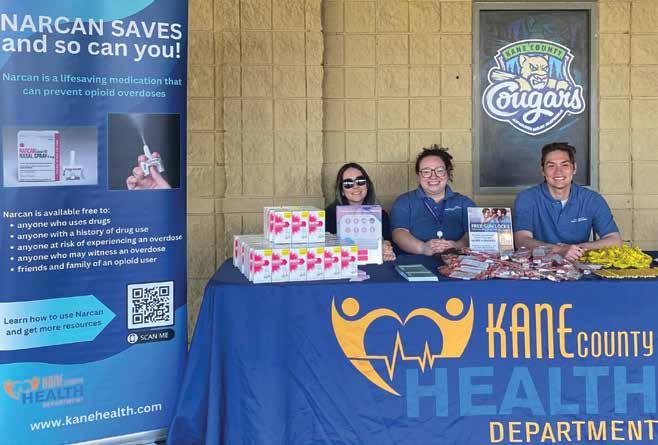
Kane County Health Department Executive Director Michael Isaacson emphasizes the importance of community outreach in reducing the stigma associated with addiction. “We are working to educate the public about the risks of opioid use, the signs of addiction, and the availability of treatment options,” says Isaacson. The department regularly hosts naloxone training, distributes educational materials, and partners with local organizations to spread awareness about the dangers of opioids.
Kane County Coroner’s Office: Data and Awareness
The Kane County Coroner’s Office, led by Rob Russell, has been instrumental in tracking the toll of the opioid epidemic. By collecting and analyzing data on overdose deaths, the Coroner’s Office provides crucial information that informs the county’s response strategies.
Russell’s office has also been proactive in raising awareness about the severity of the crisis. Through public reports and community presentations, the Coroner’s Office has highlighted the human cost of the epidemic, underscoring the need for continued action. This data-driven approach ensures that resources are allocated effectively and that the county’s response evolves in line with emerging trends.
The Kane County State’s Attorney’s Office has been a key player in advocating for policies that support individuals affected by opioid addiction. Recognizing that many people who struggle with addiction become entangled in the legal system, the office has worked to develop alternatives to incarceration.
One such initiative is the Kane County Drug Rehabilitation Court, which offers non-violent offenders with substance use disorders the opportunity to receive treatment instead of jail time. Participants are required to adhere to a strict program that includes regular drug testing, counseling, and court appearances. Success in the program can lead to reduced charges or even dismissal of the case, providing individuals with a second chance at life.
State’s Attorney Jamie Mosser has been a strong proponent of this approach, arguing that it not only benefits the individuals involved but also serves the broader community by reducing recidivism and the costs associated with incarceration.
The Kane County Sheriff’s Office has adopted a dual approach to the opioid crisis, combining law enforcement with treatment and rehabilitation efforts. While the office remains committed to cracking down on illegal drug trafficking, there is a growing recognition that
arresting individuals struggling with addiction does little to address the root of the problem.
The Sheriff’s Office “A Way Out” program allows individuals struggling with opioid addiction to seek help at the sheriff’s office without fear of arrest. Participants are connected with treatment services, including detoxification and long-term rehabilitation, as soon as possible. Sheriff Ron Hain has been a vocal advocate for this program, noting that it not only helps individuals recover but also reduces the strain on the criminal justice system.
The strength of Kane County’s response to the opioid epidemic lies in the collaboration between its various departments. By working together, the Health Department, Sheriff’s Office, Coroner’s Office, and State’s Attorney’s Office are creating a comprehensive and coordinated strategy that addresses the crisis from all angles. This unified approach has garnered positive results, but the work is far from over. As the opioid crisis continues to evolve, Kane County remains committed to adapting its strategies to meet the needs of its residents. Through ongoing education, prevention, treatment, and enforcement efforts, the county is striving to create a safer and healthier future for all its residents.
As Kane County continues its battle against the opioid epidemic, the dedication and collaboration of its departments offer hope that recovery is possible and that no one faces addiction alone.
The Kane County Health Department has launched a powerful new initiative titled “Your Story Matters,” aiming to shed light on the personal and often heartbreaking narratives of those affected by the opioid epidemic. This campaign features firsthand accounts from individuals with lived experience with opioids and addiction including people with substance use disorders, their families, and addiction medicine professionals. By sharing these stories, the campaign seeks to foster a deeper understanding of the crisis and promote a county-wide effort to combat opioid misuse.
The Heart of the Campaign
“Your Story Matters” emphasizes the human aspect of the opioid epidemic, moving beyond statistics to highlight the real-life experiences of those impacted. Each story is a testament to the resilience and strength of individuals facing addiction, as well as the dedication of professionals working tirelessly to provide support and treatment. The campaign’s goal is to break down the stigma surrounding substance use disorders, encouraging open dialogue and compassion within the community.
In the heart-felt videos from area locals, you’ll meet:
Lyndsay Hartman: A dedicated harm reductionist working across Kane County to bring safer use supplies to those using drugs, providing critical support and education to reduce the risks associated with drug use and promote healthier outcomes for individuals in the community.
Penny Stark: A recovery advocate who shares the shame, guilt and remorse she felt when trying to stop using, and how she got her life back after reaching out for help.
Joseph: A young man in recovery from his addiction to pain relievers originally prescribed to his mother for rheumatoid arthritis.
Rick Swayne: An inspirational and formerly incarcerated barber shop business owner who found help and hope inside Kane County Jail.
Deb Lewin: A family support specialist who shares her son’s battle with heroin addiction, emphasizing the importance of family members seeking support for themselves when a loved one struggles with substance use disorders.
Roberta and Don Kalish: Parents who share the heartbreaking story of their son’s struggle with opioid addiction and his untimely death. They stress the need to acknowledge the warning signs of addiction and the danger in using street drugs.
Dr. Steven Holsford: A physician specializing in addiction medicine practicing in Kane County who explains the effects of opioids on dopamine and the basics of opioid addiction in easy-to-understand language.
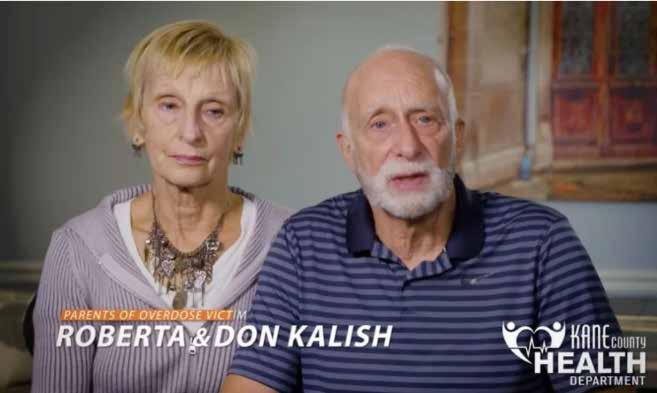
“We are incredibly grateful to those who shared courageous stories in an effort to help others, said Tina Koral, Health Promotions Manager at the Kane County Health Department. “We hope that people who are struggling will find connection and inspiration in these stories, knowing they are not alone.”
Overdoseinfo.org
The “Your Story Matters” website at www.overdoseinfo.org features the videos along with educational resources for people who use opioids, friends and family, and healthcare professionals. You can also learn how the life-saving nasal spray naloxone can reverse an opioid overdose, and where in Kane County you can get it for free without a prescription or identification.
Through the “Your Story Matters” campaign, the Kane County Health Department acknowledges the importance of every individual’s story in the fight against opioid addiction and encourages our community to support those affected by it. Visit: www.overdoseinfo.org
Opioids can harm you. The safer-use tips below can reduce the harm you or someone you love may experience when using opioids. While these tips won’t eliminate all dangers of opioids, they will lower your chances of an overdose, infection, or other bad outcome. The purpose of these tips is to keep people who use opioids alive and well.
• Come up with an overdose plan. Talk to family members and friends about what they can do to help you in case of an overdose.
• Naloxone saves lives. Naloxone is an overdose reversal drug. Carry it with you. Let others know you have it. A trusted family member or friend can administer naloxone to save your life. It can take more than one dose of naloxone to reverse an overdose. Visit overdoseinfo.org for a list of places in Kane County where you can get naloxone without a prescription or ID for free.
• It’s dangerous to take opioids when you are alone. If a trusted family member or friend is around and alert, they can look for the signs of an overdose and administer naloxone should an overdose occur. If a trusted family member or friend is not available, call the Never Use Alone
Hotline at 800-484-3731.
• Mixing drugs is risky. Combining opioids with other drugs, including alcohol and benzodiazepines, puts you at greater risk for an overdose.
• Consider your physical health. People living with asthma or other breathing problems, kidney issues, liver issues, and HIV are at high risk for an overdose. Overall health impacts the risk of an overdose. Dehydration, lack of sleep, and hunger can increase the likelihood of an overdose.
• Limit your use of the medicine. Unlike antibiotics where taking the entire course of medication is necessary, you should stop taking opioids as soon as your pain subsides. Take only the dose prescribed on the schedule prescribed.
• Don’t share your medicine. Opioids were prescribed to you based on your unique needs. A recommended dose for one person could be harmful to another person.
• Safely store your medicine. Leaving opioids on counters or in easily accessible medicine cabinets can lead others to take your opioids without your knowledge. Store your opioids in a safe place out
of reach of children and pets. The best spot is a locked box or cabinet.
• Safely dispose of leftover medicine. There is no need to hang onto opioids you did not take. Learn how dispose of drugs safely.
• Use fentanyl and Xylazine test strips to check for the presence of those drugs so you can make informed decisions about drug use and take appropriate precautions to reduce the risk of overdose. Visit overdoseinfo.org to find area locations where you can get free fentanyl and Xylazine test strips and learn how to use them.
• Injecting opioids can increase the risk of overdose and infection. Reusing needles and supplies or sharing them with others increases the chance of a negative outcome, such as contracting hepatitis C or HIV. Not sanitizing the injection site beforehand can lead to infection.
• Opioids can act fast on your brain and body. This can put you at greater risk of an overdose. People who don’t regularly consume opioids can be at greater risk of an overdose. Those who use opioids from an unknown source are also at greater risk of an overdose if they consume too much.
St. Charles resident Vicki Foley lost her son Chris in 2007. He was 27 years old and died of a heroin overdose. Since then she has been a tireless advocate for opioid awareness.
This year, Foley joined the outreach efforts at the Kane County Coroner’s office as a community liaison. She is in charge of finding ways to educate people about the use of the overdose-reversing drug naloxone (brand named Narcan) and widely distribute it. She has funding to install six naloxone vending machines across the county and hopes to place some in local libraries. These machines will provide safety kits to individuals who use drugs, know someone who does, or can recognize the signs of an overdose.
“Our efforts have been very well received,” said Foley. “Awareness about naloxone is up and the stigma surrounding its use is down.”
In 2023, naloxone was used to reverse a suspected overdose in Kane County a reported 95 times. Naloxone use frequently goes unreported. Also, in 2023, 17,842 doses of naloxone were distributed by the Kane County Health Department to Kane County first responders, organizations, agencies, businesses, and the public.
As part of her outreach, Foley will be attending farmers’ markets, festivals, and other community events in towns both big and small this summer. Foley says it gives her an opportunity to listen to people who want to share their personal stories about someone they know who is struggling with substance abuse or to discuss their own struggles.
“Talking is healing to them, and I’m happy to listen,” said Foley.
Foley and the Coroner’s Office have joined forces with Daryl Pass, Senior Manager of Recovery Support Services with the Kenneth Young Center in Schaumburg. He has helped to put naloxone vending machines in the Elgin Police Department and the Kane County Sheriff’s office. He says in one month, he has had to refill the machine in the lobby of the Sheriff’s office three times; the machine holds 54 boxes.
“People understand it’s a tool that works, that’s easy to use, and now it’s available to them, free of charge, no questions asked,” said Pass. Pass has been sober for 12 years and has spent the last five years working

Seek Natural Relief First!
McKenzie Method® of Mechanical Diagnosis and Therapy® (MDT) is recognized as a leading treatment for back, neck and extremities disorders.
Most musculoskeletal pain is affected by everyday activities, movements, and postures. We work together to find which movements give relief, providing a strategy for patients to control or eliminate their own pain and restore their function.
The McKenzie Method promotes each patient’s potential to self-manage with less reliance on medication or surgery.



Are you looking for a new chiropractor?
• Hands-on treatments

• No long-term contracts
• Rehab exercises to support you at home
• Serving Elburn for 19+ years!
Want to learn more? Schedule online at www.trilliumchiro.com
directly with people suffering from substance use disorders and those who suffer alongside them. Along with the two sober houses he supports, he also volunteers as a Certified Recovery Support Specialist at local hospitals. It’s there where he has boots on the ground and is able to steer people towards a meaningful recovery after an overdose.
Foley’s position was made possible through a grant secured by Kane County Coroner Rob Russell from the Kane County Health Department.
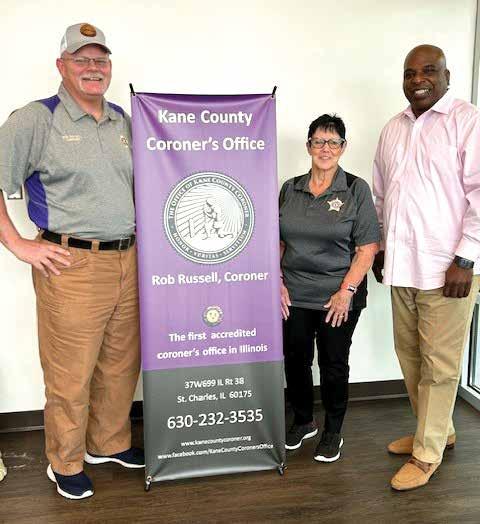
“No matter how many fatal overdoses we handle, it never gets easier,” said Russell. “This is the most frequent form of preventable death I deal with and I’m glad to have Vicki and Daryl working with us to lower those numbers,” said Russell.
The Kane County Health Department has launched an opioid awareness campaign called “Your Story Matters.” Learn more at Kane County Health Department’s Opioid Awareness page. The website also lists other locations in Kane County where free naloxone is available.



E. North St., Ste. B Elburn, IL 60119
630.365.5815


As opioid use continues to impact families and communities nationwide, Ecker Center for Behavioral Health is committed to raising awareness and providing support.
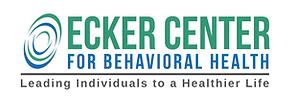
To further this mission, Ecker Center is hosting a free Overdose Awareness event on Thursday, August 29th, from 6:00 PM to 7:30 PM at their 1814 Grandstand location. This event aims to honor lives lost to overdose, celebrate hope for those in recovery, and foster community solidarity.
Ecker Center invites all community members to attend, including those directly impacted by the opioid crisis. Personal testimonies from individuals in recovery, as well as stories from family members about the impact of opioid use, will serve as powerful reminders that recovery is possible and that support is available. Attendees will also have opportunities to participate in discussions and learn about available resources.
Ecker Center offers a wide range of services designed to support individuals struggling with opioid use and their families. Programs include outpatient counseling for adolescents and adults, intensive outpatient programs, and medication-assisted recovery services, which combine medications with counseling and behavioral therapies. Personalized treatment plans are created to address the unique needs of each individual.
In addition to direct treatment services, Ecker Center provides educational programs and community outreach to raise awareness about the dangers of opioid misuse and the importance of prevention. At the event, opioid overdose reversal training and free naloxone (Narcan) kits will be
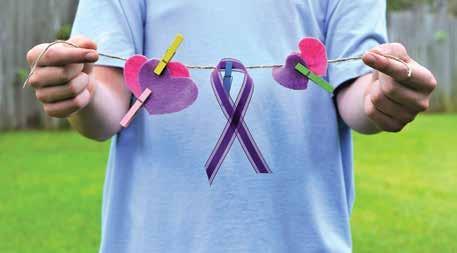
available to anyone interested. These life-saving kits are crucial in preventing overdose deaths and demonstrate Ecker Center’s commitment to community well-being.
The event will be held outdoors, weather permitting, with bathrooms available onsite. Anyone who would like to honor a loved one at the event or share their impact story or testimony should contact Jennifer Flory at jflory@eckercenter.org.
Join Ecker Center on August 29th to stand together against the opioid crisis, honor those lost, and support those on their recovery journey. For more information, visit eckercenter.org.


Garden, 1814 Grandstand Place, Elgin
Date & Time: Thursday, August 29th 6:00 PM - 7:30 PM
My name is Rob Russell. I was elected to the position of Coroner in Kane County in Dec 1, 2012. My job as Coroner is to investigate sudden and suspicious deaths. Our largest concentration of suspicious/unnatural deaths, over those 12 years, has undoubtedly been drug deaths, in particular, deaths due to opioid intoxication. Of all the possible causes of accidental death, drug intoxication is almost double the next most common form. For example, in 2021, we had 44 motor vehicle deaths. The number of opioid deaths that same year were 78. Although the actual numbers may be different, the ratio has remained somewhat proportional since 2018.
I have seen the actual substances morph from heroin (plant based) to synthetic opioids (chemically made in a laboratory). This emergence of synthetic opioids has contrib-
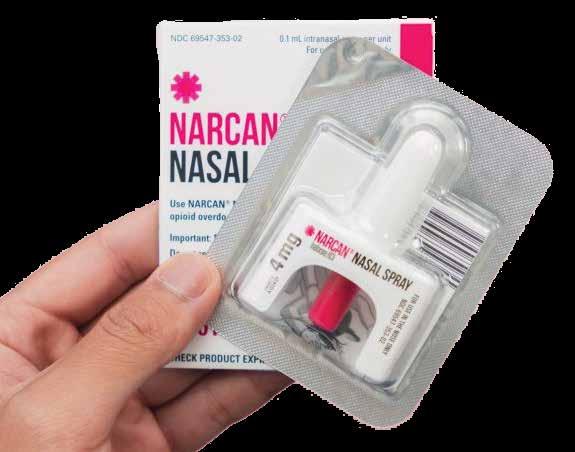
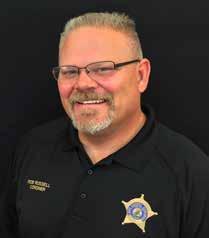


uted heavily to the sharp rise in deaths. Fentanyl is the most common of the synthetic opioids. The Drug Enforcement Administration (DEA) has tracked most of the manufacturing of the product from China. The drug is then shipped to and distributed through Mexico. When it gets to the United States, it is readily available to those addicted to the drug. It has been said, and I believe to be true, that this death drug is more easily available than alcoholic beverages and less expensive than tobacco. Because the substance is not regulated, people who use drugs really cannot gauge the concentration levels each time they use. This means that every time someone uses (especially after coming out of rehab), he or she is playing Russian Roulette, as the dose they are taking may be highly concentrated. It is well asserted that the rise in mental health issues coupled with this access has created a perfect storm for what we have today.
Early on in this epidem-
ic, we in this industry, along with our advocacy partners, have been forced to play defense in response to the havoc this has caused. All of us have worked very hard and have spent many resources (financial, emotional, and energy) fighting for the lives of those addicted to these substances. Since 2018, we have seen some ebb and flow of our efforts:
Deaths from Opiates:
2018: 62 deaths
2019: 55 deaths
2020: 64 deaths
2021: 78 deaths (possibly Covid?)
2022: 78 deaths
2023: 71 deaths
Along the way, we have tried to find ways to play offense, in hopes to thwart the number of deaths. My office has ramped up efforts in naloxone distribution by collaborating with advocacy partners to place naloxone dispensing machines around the county. We have also frequented many events, throughout the county, handing out boxes of naloxone and educating citizens on harm-reduction strategies.
To conclude, this problem is larger than any one person, group or agency to handle. We must all work toward solutions and continue to collaborate where appropriate. This is a process that is worth continuing, and we must do so. We must also continue to think outside of the box as we work together, and not be nearsighted with knee-jerk reactions. Everything must be on the table, where cool heads and intelligent problem solvers can find wins.
Kane County Coroner Rob Russell announced today the collaboration of his office with international award winning Latino author and civic leader Dr. Robert Renteria. From the Barrio bilingual book series helps to address conditions that help youth avoid choices that may lead to violence, delinquency, drug use and gangs. The Barrio program promotes education, a valued sense of pride and accomplishment, and social values that foster improved self-esteem. Together we will be donating an academic curriculum to schools at no cost that addresses critical thinking and conflict resolution.
“Since 2018, Kane County has averaged 15 Homicides
Note for Rob Russell
Coroner Russell has done many positive things to help addicts in Kane County. He had a part in bringing the “A Way Out” program to the county, along with Sheriff Ron Hain. The program provides “non-punitive support and treatment center connection” to those suffering from drug addiction. Russell was also instrumental in bringing the anti-opioid
per year. Local, State, and Federal police agencies have had to deal with an increasing amount of violence”, said Russell. “My goal is to help address this violence, by partnering with Dr. Renteria, and his proven program, because no one should have to bury a child.”
Coroner Russell said the collaboration will include being in the community with Dr. Renteria, hosting events, as well as offering the Barrio books to at risk youth. We have already offered books to the Kane County Youth Home, Elgin Township and various organizations in Aurora. For more information, please visit www.fromthebarrio.com
Narcan to Kane County, training employees on how to use it when someone has overdosed. Narcan can be delivered via nasal spray or injection. Russell has also sounded the alarm to county officials about the increase in fentanyl overdoses, and is a member of the Kane County Opioid Task Force, which is led by the Kane County Health Department. He has also served on several opioid task forces in the Chicago area.
By Rob Russell Kane County Coroner
The year I was elected (2012), there were 27 deaths due to Opioid related drug intoxication. Interestingly enough, none of those deaths were properly investigated (by the previous coroner) because no autopsies were performed on those deaths. National protocols insist that all suspected intoxication deaths should include a full autopsy after death, in order to rule out any internal, natural cause of death. Needless to say, I was accused (unjustly) of being a spendthrift coroner when I activated the proper protocols, and began having full autopsies performed on these deaths. Yes, the budget was increased, as it needed to be, but we were performing proper death investigations based on the industries best practices. Not only was this important to the families we served, but also proper in providing good science for potential prosecution of the dealers.
Back in 2012, the opioid drug of the day was Heroin. Heroin is derived from the poppy plant, most of which came from Afghanistan and other foreign nations. The liquid from the poppy plant was then shipped to Mexico, where Heroin was produced and distributed. The response from Federal, State, and Local Law Enforcement started to quell some of the trafficking of Heroin. At or around 2015, a new substance started to emerge. Although Heroin was still somewhat available, it started to give way to synthetically produced opioids. The most prevalent of those was a substance called Fentanyl. Fentanyl as a substance, when regulated and controlled, is a very effective pain medication that helps people recover from surgery and other related trauma. When not regulated and controlled, it is
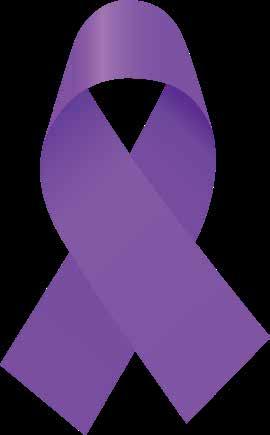
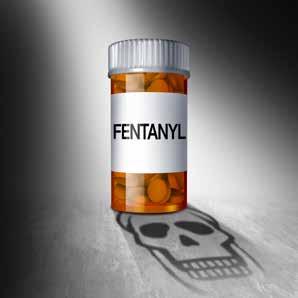
extremely deadly and the increased number of deaths over the last five years, have confirmed the potential toxicity.
The molecular composition of Fentanyl was duplicated to create illicit forms of the drug. Allegedly, the drug is easy to manufacture and easy to ship around. Street level manufacturers are also able to make the concentration more potent, meaning a little will go a long way.
Unfortunately, the ‘long way’ includes potential death. Recent collaborative efforts with law enforcement, Medical Assistant Treatment Physicians and Advocacy Groups have shown a slight decrease in deaths in 2023 and possibly 2024. As a coalition, our efforts have begun shifting from playing continual defense, to trying to play more offense with addiction issues.
In my office duties, post mortem toxicology is
The Office of Coroner is a very important institution in the law enforcement arm. Although coroners hire doctors to perform medical tests and autopsies, the office itself is not a medical agency. The coroner’s office is a law enforcement agency. Contrary to widespread belief, a coroner need not be a physician. Coroners come from many other professions, including police and fire agencies, or the funeral industry. The county coroner is an administrator who oversees the scientific process of determining a death, otherwise known as a medicolegal death investigation. The coroner guides this death investigation and authorizes the appropriate county resources needed to perform the statutory duties. The primary role of coroner is to determine the cause and manner of a death. Coroners collaborate with police and fire agencies on the scene, review medical histories from primary care physicians, interview family and friends, and order any additional forensic tests to help answer the following questions surrounding a death: who (positive ID), what, where, when and how. Once these questions have been answered, a final cause and manner can be determined.
Sometimes this investigative process is quick and easy; other times it is time consuming and difficult. The resources needed for each case are directly proportional to the level of difficulty. Budgeting the resources needed to properly complete our duties is
vital to determine exactly what substances are on the street at any given time. We in turn, share the results with other law enforcement entities (local police, State Police and DEA). Although the laboratory we use is very good, accurate and professional, there is a substantial delay in the process. A person who is suspected to be a drug death cannot be definitely determined as such, cannot be confirmed as such for 4-6 weeks due to the logistics of collection, packaging, delivering, testing and interpreting at this lab. I identified this as a problem several years ago and most recently, have collaborated with the State’s Attorney and the Sheriff to begin the process of having our own lab for real time testing results for both discovered substances and post mortem samples. It is our great hope, that the establishment and eventual result of a regional lab will ‘speed up’ the process and allow all law enforcement to ‘get a quicker jump’ on the enforcement of substances in real time, rather than having to wait several weeks for results. The tests that are performed can be garnered in hours to days, rather than weeks to months. We all realize that this is a big endeavor that will take some time to be done properly. My office has written for (and has been awarded some) over $3 million in Federal grants to help get us started. It is projected that, at some point, this lab will not only support itself and allow for much quicker results, but may also create revenue and expand as a regional resource. We have already begun and performed some tests with positive results. Stay tuned as we continue the process and complete this lab as a self sustaining, law enforcement and court served venture. We expect this to take another 2-5 years for us to be fully functional. Each year we have, and will continue to, expand our capabilities.
an educated estimate based on industry knowledge and past trends.
Sometimes families cannot afford burial. Other times, relatives don’t want to accept the responsibility. In some cases, the coroner could not find any relatives. I began entombing cremains in 2013. Being unclaimed is still the exception, but it is still troubling how many people are unclaimed.
When I took office in 2012, I found 47 boxes of cremains stored in a closet next to files, office supplies and Halloween decorations. Some dated to the 1950s. The first entombment included 40 of those boxes and 121 from funeral homes. 2024 is the fifth time I have arranged such a ceremony. There are about 300 boxes of ashes and one vault is full. A ceremony is led by myself and a member of clergy and attended by members of the public before entombment in the mausoleum in St Charles. Now these cremains have been claimed and have been given a proper burial.
All names of these unclaimed deceased from the coroner’s office can be found on findagrave.com, a website where people can search for burial information.
Our motto, “Honor, Truth and Service,” coupled with compassion, are the bedrock principles of what we do. It is an honor to serve as your Coroner. If you have any comments or concerns, please do not hesitate to call me 630-232-3535.
Naloxone (brand named Narcan) is an easy-touse nasal spray that rapidly reverses an opioid overdose. It attaches to opioid receptors in the brain and reverses the effects of opioids. It can restore normal breathing within 2 - 3 minutes in a person whose breath has slowed, or even stopped, because of an opioid overdose. More than one dose of naloxone may be required when stronger opioids like fentanyl are involved.
Naloxone won’t harm someone if they’re overdosing on drugs other than opioids, so it’s always best to use it if you think someone is overdosing. Naloxone has no effect on someone who does not have opioids in their system. Each box of naloxone contains two doses.
What are the signs of an opioid overdose?
• Blue or purplish colored fingertips or lips
• Difficulty breathing or stopped breathing
• Pinpoint pupils
• Unresponsive or may be unconscious
• Pale or clammy skin
• Limp body
• Vomiting or gurgling sounds
• Slow or undetectable pulse
How do I give naloxone?
1. Try to wake the person by shaking their shoulders and calling their name.
2. Call 911 (or step 3, whichever you can do quickest).
3. Spray naloxone in one nostril. Move the
person to their side (recovery position).
4. If symptoms return or the person does not respond by waking up to voice or touch after 2-3 minutes, give another dose in the other nostril.
5. Start rescue breathing if you have a one-way barrier.
6. Stay until help arrives.
Where can I find naloxone?
You can get naloxone for free at any of the following locations with no prescription and no identification requirements: Aurora
• African American Men of Unity (630) 606-1910
• Association for Individual Development (630) 966-4000
• Aurora Public Library, (630) 264-4120
• Echo Development Center, (630) 859-2248
• Kane County Health Department: Naloxone is available in the lobby at 1240 N. Highland Avenue, Aurora for pickup M-F, 8:30am - 4:30pm.
• Mutual Ground, (630) 897-0084
• Simply Destinee Youth Center, (708) 926-4979
Campton Hills
• Campton Hills Police Department (630) 584-4242
Elgin
• Ecker Center for Behavioral Health (847) 695-0484
• Mathers Recovery Center, (847) 462-6099
Naperville
• Path to Recovery Foundation, (630) 962-9652
St. Charles
• Kane County Sheriff’s Office (630) 232-684024-hour free naloxone and fentanyl test strip vending machine in the lobby at 37W755 Lincoln Highway
• Kane County State’s Attorney’s Office (224) 833-2557
• Lighthouse Recovery, (630) 940-2468 - 24-hour free outdoor naloxone vending machine at 210 S. 5th Street
• St. Charles Police Department lobby at 1515 W. Main Street
• Tri City Health Partnership, (630) 377-9277
Kane County is deeply committed to supporting naloxone distribution as a vital part of its strategy to combat the opioid epidemic. By making this life-saving medication widely available, the county is giving individuals struggling with opioid use disorders another chance. This commitment reflects Kane County’s broader goal of providing people with the opportunity to recover from their overdose and continue their lives. For more information about naloxone including a brief training video and how to request training for your group, visit: overdoseinfo.org
The Kane County Health Department is dedicated to reducing opioid fatalities across the county by offering a range of free services. These include free trainings on opioids, overdoses, and naloxone, available to all county residents. Additionally, the department provides valuable resources and education on opioids to those in need. By utilizing data from local agencies, the health department ensures their trainings are accurate and identifies the areas most in need of naloxone distribution.
Naloxone distribution is a key focus for the Health Department. In 2023, they distributed 8,921 individual boxes of naloxone to first responders, organizations, healthcare centers, and the general public to help reduce fatal opioid overdoses. Partnering with various entities throughout the county, these collaborative efforts resulted in training 2,381 people in 2023. The health department is now working with local organizations to implement naloxone vending machines at various locations throughout Kane County.
“A major part of my job is teaching community members how to use naloxone and making sure it’s available when needed during
an overdose,” said Sharon Cabrera, Substance Use Prevention Specialist at the Kane County Health Department. “By providing this training and access, we can help save lives and make a real difference in our community’s response to opioid emergencies.”
In April of this year, the health department introduced naloxone leave-behind kits for first responders and substance use treatment organizations to distribute. These kits include a box of naloxone, fentanyl and xylazine test strips, a one-way rescue breathing barrier device, gloves, a medication disposal packet, and a resource guide detailing the contents and how to use them, and substance use resources available in the county. These supplies promote safe use and provide education on recovery options. One goal of this initiative is to reach individuals and families in rural areas or those lacking transportation, so that in the event of an overdose, they can give naloxone while waiting for emergency services to arrive. Another goal is to offer resources not only for individuals using substances but also for their families to help them navigate the situation better.
The following departments and organizations are participating in this initiative and have started distributing kits:
Campton Hills Police Department
Elgin Police Department
Elburn Police Department
Fox Valley Park District Police Department
Geneva Police Department
Gilberts Police Department
Montgomery Police Department
North Aurora Police Department
St. Charles Police Department
Association for Individual Development
Ecker Center for Behavioral Health
Family Guidance Centers in Aurora
Lighthouse Recovery, Inc.
Mutual Ground
Path to Recovery
If your organization would like free naloxone, training, or other resources, please reach out to the Kane County Opioid Overdose Prevention program by email to phdopioidinfo@ kanecountyil.gov
Proper and timely disposal of prescription and over-the-counter medications is extremely important! Storing drugs for prolonged periods at home can lead to accidental poisoning, particularly among young children. Holding on to certain prescription pain killers, anxiety medications and sleep aids beyond the period of medical necessity increases risks associated with drug dependence and potential overdose.
Check for expired prescription medicines, as they may no longer be safe or effective. Ensure that your prescription medication is stored in its original packaging with the safety lock tightened and secured. Secure your medication. Store it in a location inaccessible to children and pets. For prescription narcotics such as morphine, opioids, or codeine, consider further securing them in a locked cabinet or drawer. Proper storage of these controlled substances is crucial, as they can pose significant risks if taken without a prescription.
You may bring unused or expired prescription drugs to the following locations for safe disposal. Remove identifying labels before dropping off.
Campton Hills Police Department
Elburn Police Department
Elburn Village Hall
Geneva Police Department
Hampshire Police Department
Hampshire Pharmacy
Kane County Coroner’s Office
Maple Park Police Department
Medical Park Pharmacy, Aurora
Meijer Pharmacy, St. Charles Pingree Grove Police Department
Presence Mercy, Aurora
Presence Saint Joseph, Elgin South Elgin Police Department
Don’t Flush!
Flushing drugs down the toilet or sink and even throwing them in the trash leads to medications ending up in our waterways. Please don’t flush your medications. If no safe drug disposal locations or programs are available in your area, and there are no specific disposal instructions in the package insert, according to the Food and Drug Administration, you can follow these simple steps to dispose of most medicines in your trash at home:
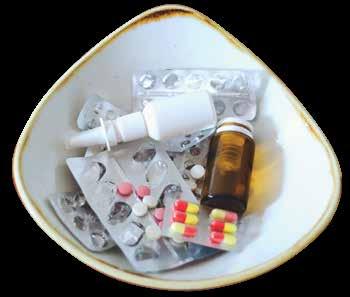
Mix medicines (liquid or pills; do not crush tablets or capsules) with an unappealing substance such as dirt, cat litter, or used coffee grounds; Place the mixture in a container such as a sealed plastic bag; Throw away the container in your trash at home; and Remove all personal information on the prescription label of empty medicine bottles or medicine packaging, then trash or recycle the empty bottle or packaging.
For more facts about safe drug storage and disposal, visit the Kane County Health Department’s opioid overdose prevention website at: overdoseinfo.org
Although substance use disorders are chronic and treatable medical conditions, studies show people with these disorders still face discrimination and stigma. Stigma is a set of negative attitudes and stereotypes that can impact the health and well-being of people with substance use disorders in numerous ways.
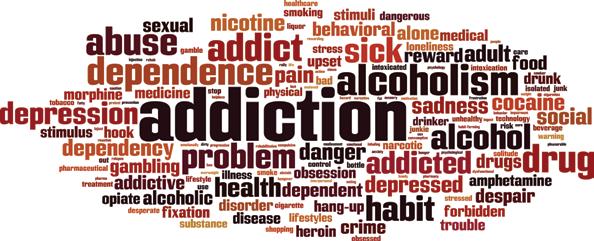
Research shows the language people use can contribute to stigma and discrimination against people with substance use disorders. Commonly used terms referring to people with addiction often reflect the misconception that their drug use and related behaviors are a choice, rather than a disease, and that they are to blame for their medical condition.
Studies show that terms like “junkie” and “addict” feed negative biases and dehumanize people. In one study, clinicians rated a person described as a “substance abuser” as more worthy of blame and punishment than
someone described as “having a substance use disorder.”
Words to Avoid, and Words to Use
When referring to someone with a substance use disorder, it’s best not to use words like:
Addict
User
Substance or drug abuser
Junkie
Former addict
Reformed addict
And instead use words like:
Person with a substance use disorder (SUD)
Person with an opioid use disorder (OUD) or person with opioid addiction
Person who misuses opioids/ engages in unhealthy or hazardous opioid use
Person in recovery or long-term recovery/person who previously used drugs
Using person-first language shows that substance use and opioid use disorders are illnesses. Using these words shows that a person with a substance use disorder “has” a problem rather than “is” the problem. We can show compassion and reduce stigma by using language that respects the person’s dignity, avoids judgmental terms, and emphasizes the medical nature of substance use disorders. For more facts about opioids and reducing stigma surrounding substance use disorders, visit the Kane County Health Department’s opioid overdose prevention website at: overdoseinfo.org



Medication-assisted recovery (MAR) is a comprehensive treatment approach for opioid use disorder (OUD) that combines the use of medications with counseling, therapy, and support services. The primary goal of MAR is to help individuals manage their addiction, reduce cravings and withdrawal symptoms, and improve their overall quality of life. MAR is often considered the gold standard of care for OUD and has been endorsed by leading medical organizations, including the Substance Abuse and Mental Health Services Administration and the American Society of Addiction Medicine.
Several medications are approved by the Food and Drug Administration for the treatment of opioid use disorder. These medications work by targeting the same opioid receptors in the brain as opioids but in a safer and less addictive manner. The three main medications used in MAR for opioid use disorder are:
• Methadone: Helps reduce cravings and withdrawal symptoms without producing the euphoria or sedation associated with other opioids.
• Buprenorphine: Activates opioid receptors in the brain to a lesser extent than opioids like methadone or heroin. It helps alleviate cravings and withdrawal symptoms while also blocking the effects of other opioids.
• Naltrexone: Blocks the effects of opioids by
binding to the opioid receptors in the brain, preventing other opioids from attaching to them. Unlike methadone and buprenorphine, naltrexone does not alleviate withdrawal symptoms or cravings.
Extensive evidence shows that methadone, buprenorphine, and naltrexone effectively reduce opioid use and symptoms related to opioid use disorders. These medications also lower the risk of infectious disease transmission and drug-related criminal behavior. Additionally, they increase the likelihood of individuals staying in treatment, which is lowers the risk of overdose death, reduces transmission of HIV and HCV, decreases involvement with the criminal justice system, and increases the likelihood of employment.1
MAR is not the same as substituting one addictive drug for another. When someone receives MAR for OUD, the dosage of medication used does not produce the “high” associated with opioid misuse. These medications restore balance to the brain circuits affected by addiction, allowing the brain to heal while working toward recovery. MAR is like taking medication for diabetes—in conjunction with behavioral and lifestyle changes, they help people manage the physical aspects of their disorder so they can maintain their recovery.
Starting Medication-Assisted Recovery
You can start your recovery journey by finding
an area doctor who prescribes opioid treatment medication or using the Illinois Helpline MAR NOW program.
• The Substance Abuse and Mental Health Services Administration (SAMHSA) Buprenorphine Treatment Practitioner Locator at samhsa.gov can help you find doctors skilled in medications that treat opioid use disorders.
• The Illinois Helpline MAR NOW program offers medication on demand to IL residents seeking treatment for opioid use disorder (OUD) and alcohol use disorder (AUD). Individuals can speak directly with a provider over the phone, immediately receive a prescription or expedited, in-person appointment, and get transportation assistance to the pharmacy or clinic – all free and initiated through one phone call to 833-234-6343, or text “HELP” to 833234 anytime, 24 hours a day, 7 days a week.
For more facts about opioids and medicationassisted recovery, visit the Kane County Health Department’s opioid overdose prevention website at: overdoseinfo.org
The devastating impact of opioid use disorder has led to a surge in overdose deaths, strained healthcare resources, and disrupted families and communities. To combat the crisis in Kane County, Northwestern Medicine Delnor Hospital and the Kane County Health Department collaborated to support those in crisis while in their emergency department by pairing patients with peer support specialists who use their own experiences with recovery to provide guidance, support, and encouragement to others.
Before the Peer Recovery Program, which started in February 2024, this gap in services for individuals entering the emergency department experiencing substance use disorder resulted in individuals leaving the emergency room without the support and resources needed to help them start a recovery journey. The project presented an opportunity to close that gap while also lessening reoccurrence of emergency department visits.
Northwestern Medicine Delnor Hospital, the Kane County Health Department and other community partners design, implement, maintain, and evaluate protocols that screen patients in the emergency room for substance use. Eligible patients are connected with a peer recovery specialist to discuss medications for opioid use disorder, other treatment options, and harm reduction services. The program focuses on three key areas: support, education, and community.


Support is provided through peer mentoring and connection to support groups. Individuals in recovery are trained to serve as peer specialists to provide support to patients that present to the Emergency Department and report substance misuse and/or addiction.
Education on available resources is provided while the patient is in the hospital. The peer recovery specialists also participate in support groups hosted by the Behavioral Health Services department at Northwestern Medicine Central DuPage Hospital.
Community integration is provided through the connection to recovery and other community resources using the Kane County Health Department’s robust Integrated Referral and Intake System (IRIS). The Peer Recovery Specialists collaborate with local organizations to create a network of support.
While the program has only been in place for about 6 months, the Northwestern Medicine Delnor Hospital peer support
specialists have been accepted by emergency department staff and greatly utilized and respected for the vital role they play within the care team. They have been successful in engaging people who use drugs and provide a judgement-free environment where individuals feel safe and heard.
“I met with a 22-year-old who had an accidental overdose on Ketamine, Zanax and alcohol,” recounts one of Delnor’s peer support specialists. “Her mom put down an ultimatum that she could no longer live with the mom or use the car. She was very against going to rehab, but after an hour of explaining the ins and outs of rehab, she agreed to go. We did the intake process together and had her dressed and out the door being sent directly to rehab.”
This intervention was made possible with a grant funded by the National Association of County and City Health Officials (NAACHO).
“We are addressing the issue of opioid overdoses from multiple angles,” said Michelle Meyer, Assistant Director of Community Health at the Kane County Health Department. “From providing peer supports in emergency rooms, to supporting local organizations that directly serve residents, to ensuring naloxone is available exactly when and where an overdose occurs, our efforts are dedicated to creating a safer and healthier community.”
For opioid and overdose education and resources, visit: overdoseinfo.org
According to the 2022 National Survey on Drug Use and Health, 48.7 million Americans aged 12 or older had a substance use disorder. Substance use disorders continue to be an important health issue in our country and here in Kane County.
Substance Use Disorders (SUDs) are longterm, treatable health problems where a person has trouble controlling their use of drugs or alcohol, even though it’s hurting their health, relationships, or daily life. It involves a mix of thinking, behavior, and physical problems in which the person keeps using the substance despite the negative effects. SUDs can be mild or severe and can affect anyone, no matter their race, gender, income, or social status.
A substance use disorder diagnosis can be applied to the following classes of drugs: alcohol cannabis hallucinogens
inhalants
opioids
sedatives
hypnotics, or anxiolytics
stimulants; tobacco (nicotine)
other (or unknown) substances
Repeated use of, and dependence on the substance will lead to a pattern of compulsive use, drug tolerance, and if discontinued, withdrawal symptoms.
Many people continue misusing drugs so that they can avoid withdrawal. Withdrawal is the combination of physical and mental effects a person experiences after they stop using or reduce their intake of a substance such as alcohol and prescription or recreational drugs.
Withdrawal symptoms and severity will vary depending on the type of drug you were taking, the amount of time you were taking it, and the dosage you were taking. Symptoms include:
Changes in appetite
Changes in mood
Chills or shivering
Congestion
Depression
Fatigue
Irritability
Muscle pain
Nausea
Restlessness
Runny nose
Shakiness
Sleeping difficulties
Sweating
Tremors
Vomiting
In some instances, more severe symptoms such as hallucinations, seizures, and delirium may also occur.
While the physical symptoms of withdrawal might last only a few days or a week, the psychological withdrawal, such as depression, can last much longer.

“Here in Kane County, we are fortunate to have a wealth of resources dedicated to helping individuals and families dealing with substance use disorders,” said Kim Peterson, Director of Community Health at the Kane County Health Department. “From treatment centers and support groups to educational programs and community outreach, our aim is to connect people who need comprehensive support to the organizations that provide it.”
For more facts about substance use disorders and opioids, and to find local resources visit the Kane County Health Department’s opioid overdose prevention website at: overdoseinfo. org
Opioid medications are a class of drugs that include prescription pain relievers and illegal drugs. People take opioids because they bind to specific receptors in the brain, spinal cord, and other areas of the body to reduce pain. Opioids also produce feelings of pleasure.
Opioids may be prescribed by a doctor to treat moderate to severe pain, and they may have serious side effects. Example of prescription opioids include oxycodone (OxyContin™), hydrocodone (Vicodin™), morphine, codeine, and methadone.
Heroin and fentanyl are dangerous, illegal opioids. Heroin is a highly addictive drug that is processed from morphine, which is a naturally occurring substance extracted from the seed pod of the Asian opium poppy plant. Fentanyl is a synthetic opioid pain reliever but is also taken without a prescription. It is many times more powerful than other opioids and is approved for treating severe pain. Fentanyl can also be illegally made and distributed and is found in many street drugs due to cross-contamination.
“Many individuals in our community are turning to opioids as a means to cope with mental health challenges and stress,” said Michael Isaacson, Executive Director of the Kane County Health Department. “However, it’s important to understand that while they may provide temporary relief, opioids carry significant risks, including addiction and overdose.”
People taking opioids should be aware of the risks to their health.
Opioids are addictive. One of the main risks of opioids is their potential to cause addiction. When people take opioids for a long time or in higher doses than prescribed, they can become dependent on them. This means they may feel like they need the medicine to function normally, even if they don’t have pain anymore. Addiction can lead to serious problems in a person’s life and can be very hard to overcome.
Opioids have harmful side effects. Opioids can make people feel very sleepy or dizzy, which can increase the risk of accidents or falls. They can also slow down a person’s breathing, especially if taken in large amounts, which can be life-threatening.
Opioids can cause an overdose. If someone takes too much of an opioid or mixes it with other substances like alcohol or certain medicines, it can overwhelm the body and lead to a dangerous overdose. Opioid overdoses can cause breathing problems, loss of consciousness, and even death if not treated promptly.
Opioids could contain unknown substances. Opioids obtained illegally, such as through street dealers or online sources, can be even riskier. They may contain unknown substances, like fentanyl, or have unpredictable potency, making them especially dangerous.
While opioids can be highly effective for managing pain, their use comes with significant risks. The different types of opioids each carry potential for misuse, dependency, and overdose. Understanding these risks is crucial for those using opioids to ensure they are prescribed and used responsibly. For more facts about addiction and opioids, visit the Kane County Health Department’s opioid overdose prevention website at: overdoseinfo.org
The Kane County Health Department is dedicated to bringing our community together to reduce overdoses and death in our community. Their substance use website offers personal stories, information and resources for people who use opioids, their friends and family, and healthcare professionals. You’ll also learn how to use the life-saving nasal spray naloxone and where to get it for free in Kane County, without a prescription or identification. Visit overdoseinfo.org today.
By Jamie Mosser Kane County State’s Attorney
Kane County has four specialized treatment courts that specifically address treatment and rehabilitation for individuals currently charged with a non-violent crime.
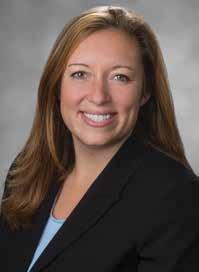
The four courts are: the Drug Rehabilitation Court, the Treatment Alternative Court (for individuals diagnosed with a mental health disorder), the Veterans Treatment Court, and the newest court, the Driving Under the Influence Treatment Court.
Initially incepted in 2000, the Drug Rehabilitation Court (DRC) offers individuals who are charged with a non-violent, felony crime. Participants must be considered high risk to commit a new crime and high need for substance use disorder treatment, which is determined after a lengthy and objective two-part assessment process. If a participant pleads into DRC, they are placed on intensive probation for an average of 24 months. While in the program, all of their needs that brought them into the criminal justice
system are addressed. The DRC team addresses each participant’s unique housing, transportation, mental health, and substance use needs. The majority of participants have co-occurring substance use and mental health disorders, so it is important to address both needs while in the program.
Based on an individual’s specific treatment needs, a treatment plan is developed for each individual. This often requires a participant to complete inpatient treatment followed by a halfway house and a three-quarter house. Providing structured living is a key component to leading to a successful graduation from DRC. While in the program, participants are strictly monitored with multi-weekly, randomized drug tests. Once participants complete their initial treatment, they are required to attend three support meetings a week, such as Alcoholic Anonymous, 12 Steps, Narcotics Anonymous, or Smart Recovery, which allow them to meet sponsors or mentors to further aid in their long-term recovery. The team also encourages each participant to change their “people, places, and things” of their past that often led to their substance use.
While in the program, individuals are expected to refrain from using any drugs or alcohol. However, if they have a return to use, the response is often a therapeutic adjustment, such as offering more treatment. Many individuals require multiple inpatient treatments before they can establish long-term recovery and DRC is
built on the understanding that progress, not perfection, is often the goal in the beginning of any participant’s journey. However, if the participant participates in behavior that threatens the public, a jail sentence or termination from the program could occur, as public safety is always a priority.
The DRC team meets weekly to address each participant’s progress. The team consists of the judge, an Assistant State’s Attorney, an Assistant Public Defender, various probation officers, a treatment coordinator, a drug court coordinator, various representatives from treatment providers, and a psychologist. During the team’s staffings, the team will discuss treatment adjustments, incentives, and sanctions based on how each participant is doing. The program aims to incentivize when participants are doing well. This could mean an applause, compliments from the DRC team, or a gift card to recognize a big milestone. Sanctions could include community service or jail. However, most adjustments are treatment adjustments, such as increasing treatment, requiring daily support group meetings, doing a behavior chain, or sending daily medication videos.
If the participant successfully graduates the DRC program, they often receive a deferral, meaning that their case is ultimately dismissed. If they are terminated from the program, they often are re-sentenced to prison. However, most individuals are able to successfully graduate and continue their long term recovery.
By Ron Hain Kane County Sherrif
In 2019, Kane County Sheriff Ron Hain had a vision to begin addiction support, not only within the County Jail, but for those in the community who needed support when they did not know where to turn. Sheriff Hain launched the A Way Out program that allowed citizens to reach out for help by phone call, text, or email and have a deputy respond in a non-punitive fashion to get them to treatment within four hours of the request.
The operation kicked-off successfully, serving 12 calls in the first 6 months. The program evolved over the years to include our jail re-entry civilian staff providing the majority of the support. We also employ a former jail detainee who was part of the Recovery Pod program who struggled with addiction for most of his life, but now clean and provides a sober rideshare program to those who need transportation to and from treatment providers.

Making steps like these to provide true community service completely changes the optics of law enforcement with the public they serve. We are proud to announce the following statistics from this essential program:
Since July of 2019:
2019 - 12 calls
2020 - 9 calls
2021 - 8 calls
2022 - 42 calls
2023 - 77 calls
2024 - 42 calls through today
190 total calls have been recorded
178 have been for alcohol and drug abuse treatment needs
12 for mental health needs
143 have met requirements for in-patient treatment
14 have met requirements for out-patient treatment
6 asked for half-way house placements
Of the 178 calls who did assessments 36 did not go to treatment when a placement had been arranged for the individual
Approximately 75% were males and approximately 25% were females
Since COVID was over---The majority of calls came from probation officers and court services as well as out-patient treatment centers
Prior to COVID most calls came from Deputies.
We do not have a success rate for those who finished treatment. However, 107 of the 143 who were able to get a treatment bed did start a treatment program for a 75% success rate of starting a program with A Way Out’s assistance.
Based on this data, Sheriff Hain feels this program is a strong success. “If we can help save just one person, it is all worthwhile.”
– Sheriff Ron Hain
The opioid crisis remains a critical public health issue, with communities across the nation grappling with the devastating impact of opioid misuse and overdose. In response to this ongoing challenge, the Kane County Health Department (KCHD) has been at the forefront of local efforts to combat opioid-related deaths and support community-based solutions. Thanks to funding from the Illinois Department of Human Services’ (IDHS) State Opioid Response (SOR) Grant, KCHD has been able to provide financial support to local organizations that are pioneering innovative approaches to opioid overdose prevention.
The SOR Grant, managed by IDHS, is designed to expand access to treatment, reduce unmet treatment needs, and reduce opioid overdose-related deaths through the provision of prevention, treatment, and recovery activities. Kane County, with its diverse population and unique local challenges, has utilized these funds not only to saturate the county with naloxone, but to also support community organizations that are on the front lines of this epidemic.
Michelle Meyer, Assistant Director of Community Health and manager of the SOR Grant at KCHD emphasizes the importance of community involvement in tackling the opioid crisis. “The State Opioid Response Grant has allowed us to empower local organizations to develop and implement strategies that are tailored to the specific needs of our community.” Meyer adds, “This grant is not just about providing funding; it’s about supporting innovation and encouraging approaches that may not have been possible otherwise.”
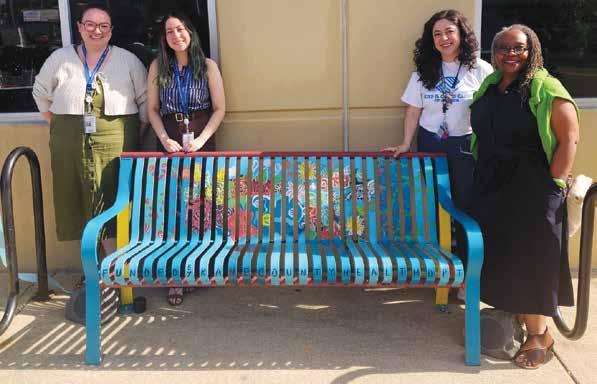
The Boys & Girls Glub of Elgin and Elgin Area Leadership Academy raise awareness about drug and opioid use with a hand-painted bench with a nearby speaker that provides information in English and Spanish about the opioid overdose reversing nasal spray naloxone and area treatment resources. This project and others funded by the Kane County Health Department in the fight against opioid overdoses include various peer support services, street outreach, and expanded naloxone distribution.
By distributing funds to a variety of local organizations, KCHD ensures that multiple facets of the crisis are addressed. During the 2023-24 grant year, the following organizations were awarded a total of $222,159 in support of their unique projects:
• Association for Individual Development’s Street Outreach Intervention Program: Reducing fatal and non-fatal opioid overdoses for individuals living in homeless encampments by identifying individuals who use drugs and providing them with Narcan and harm reduction materials in order to prevent overdoses. AID also provides Narcan to other individuals in the encampment to empower them to be a first responder to those living in their community who are overdosing. The Street Outreach Intervention Program focuses on-helping individuals who are disproportionately affected by opioid overdoses and are at a higher risk for homelessness such as people of color, individuals returning to society after a period of incarceration, people with a history of substance misuse, and people living with HIV/AIDS or other chronic conditions.
• Ecker Center: Interventions to reduce fatal and non-fatal opioid overdoses through the operation of the Recovery Cafes with a Recovery Support Specialist to provide general support, encourage fellowship among others in recovery, offer job search resources, recovery meetings, and offer resources to those considering treatment. This project will also engage with the Social Services Department of the Kane County Sheriff’s Department and with the Kane County Jail Staff to provide services to vulnerable populations struggling with substance use, as well as to engage individuals who are approaching release from the jail.
• Lighthouse Recovery Inc.: Providing Medication Assisted Recovery Services (MAR) services to 125 new clients who use Medicaid.
• Kane County Coroner’s Office: Harm reduction outreach efforts to the
public including quarterly meetings specifically for staff and counselors of addictions centers throughout Kane County, and monthly reporting of confirmed drugs from toxicology screens to the U.S. Drug Enforcement Administration (DEA) National Forensic Laboratory Information System for medical examiner and coroner offices (NFLIS-MEC).
• Path to Recovery: Providing harm reduction, one-on one coaching and educational support that individuals and families require when affected by addiction to support and guide a person with substance use disorder towards maintaining sobriety and achieving long term recovery.
• Advocate Sherman Hospital: Targeted community outreach, education, and material distribution with the goal of reducing overdoses in the African American population by partnering with the African American Coalition of Kane County (AACKC).
• Elgin Area Chamber of Commerce: Installation of a talking bench in front of the Boys and Girls Club of Elgin to raise awareness and improve access to opioid overdose prevention resources.
Tina Koral, Health Promotions Manager at KCHD, highlighted the success of these efforts: “The organizations we’ve supported are making a real difference in our community. Whether it’s through peer support programs, community outreach, or recovery services, each of these initiatives is playing a crucial role in reducing opioid overdoses and saving lives.”
While the SOR Grant provides essential financial support, the long-term success of Kane County’s opioid prevention efforts relies on building sustainable programs that can continue to thrive beyond the duration of the grant. To this end, KCHD is not only funding immediate interventions but also investing in the capacity-building of local organizations. By offering training, technical assistance, and opportunities for collaboration, KCHD is helping to ensure that the gains made through the SOR Grant can be maintained and expanded in the years to come.

Nate Lanthrum, CADC Clinical Director Lighthouse Recovery
“Our job is to love others without stopping to inquire whether or not they are worthy. That is not our business and, in fact, it is nobody’s business. What we are asked to do is to love, and this love itself will render both ourselves and our neighbors worthy.” – Thomas Merton
Many of us have family or friends struggling with diabetes, hypertension, or asthma. Some suffer from cancer, perhaps caused by years of poor diet or smoking. Their doctors establish a treatment regimen, but our loved ones struggle to adhere to the plan, and in some instances, fail to comply with recommendations to keep them healthy. Unfortunately, this is common: as many as 40-50% of medical patients with any type of complex disease management fail to adhere to treatment recommendations.
Would you give up on these individuals if they struggle with their treatment plan? Would a patient’s medical team discharge their patients due to non-compliance?
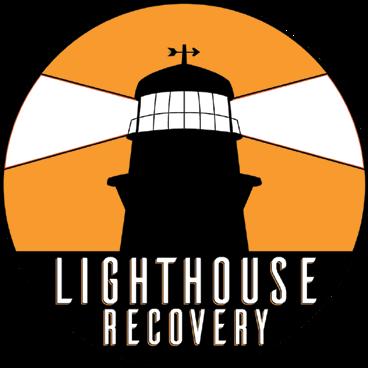
Replace any of those illnesses with the disease of addiction. Your loved one is struggling with alcoholism, heroin addiction, or prescription pill addiction. Would you treat them differently? Would their need for care depend on how their addiction developed in the first place? Should we ignore the wisdom and compassion of Thomas Merton, and only help some, while ignoring others?
As with illnesses like hypertension or diabetes, addiction is a disease with physiological and behavioral components affecting onset and a patient’s successful recovery. According to the National Institute on Drug Abuse, these illnesses have the same, or greater, “relapse” rates as addiction.
For nearly seventy years, the American Medical Association has classified alcoholism as an “illness,” and in 1987, classified addiction as a “disease.” These steps, though important, have still not done enough to change our community’s perception of who an addicted person is, how their lives became unmanageable, and how compassionate care is just as important for them as for your loved one who suffers
from diabetes or hypertension.
Compassionate care requires treatment for both the insured and the uninsured. Unfortunately, in certain parts of this country, addiction treatment has become a financially predatory business that only focuses on “optimal payers” or fully insured clients. We, as treatment providers, must do better to force change in our own industry and increase access to care for statesponsored insurance clients, uninsured clients, and the homeless. We have our heads buried firmly up our pocketbooks if we believe that only providing treatment to the insured population will even come close to addressing the urgent needs of this current national crisis.
Most importantly, compassion requires our introspection. We must look inside ourselves and change the way we think, and talk, and feel, about addiction. We need Thomas Merton’s wisdom now more than ever. Our business is to care, treat without discrimination or judgement, and to love. Only then can we work together, compassionately, to help our struggling brothers and sisters – no matter their illness.










• Early Intervention and Risk Education
• Intensive Outpatient • Outpatient
• Medication Assisted Treatment
• Individual and Family Therapy
• Virtual Services Available
• Court Ordered Assessments and Treatment
• DUI Services
(Evaluation, Risk Education and Counseling)
• Secretary of State Evaluations
• Spanish Language Services


Using evidence based practices, Lighthouse Recovery offers a path to wellness for the prevention of and recovery from substance use and related issues for individuals and families in











